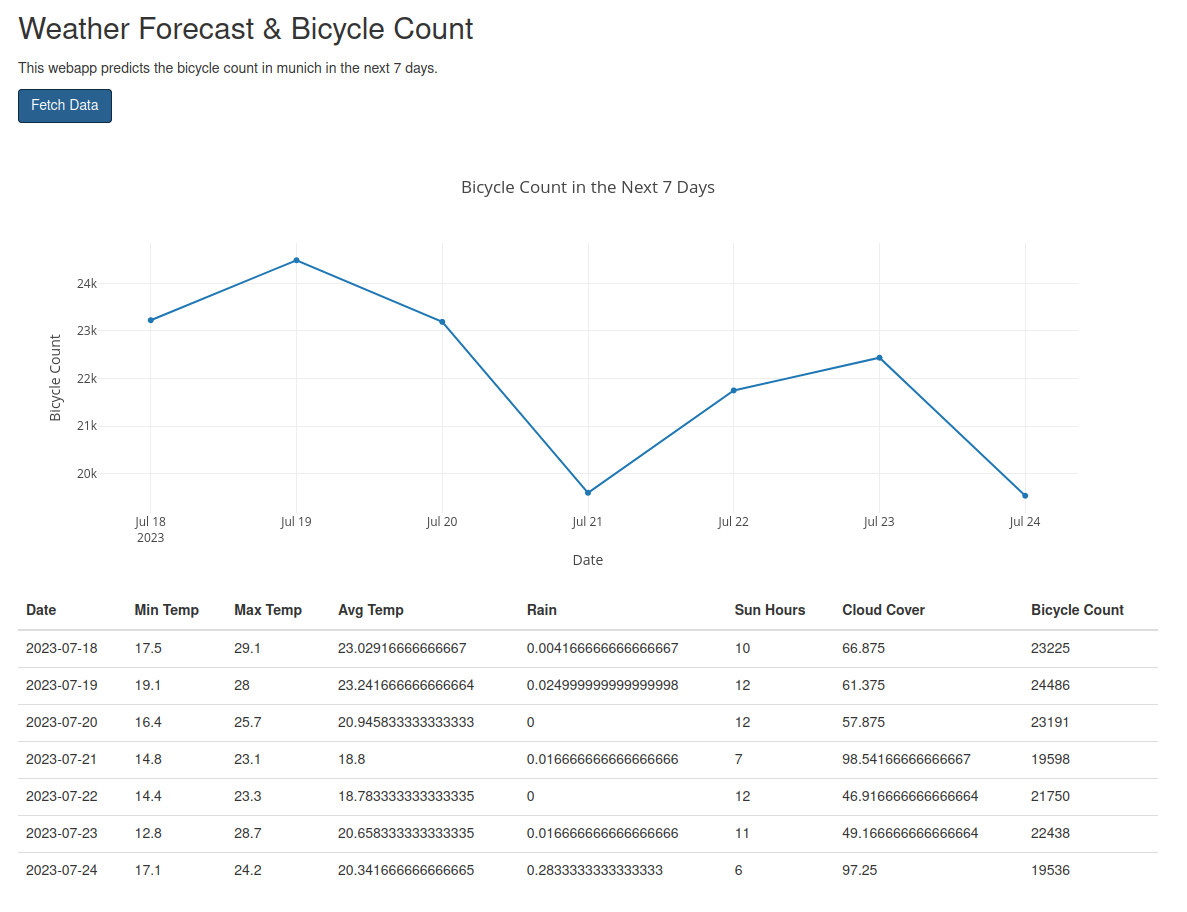This project uses opendata of the city of Munich to predict the expected number of cyclists for a given day using the weather forecast and historic data.
Blogpost:
https://medium.com/@jonas.hahn/open-data-predicting-cyclist-traffic-in-munich-4acf1c11c0ed
To run the webapp via docker execute the following commands:
docker-compose up
The webapp is then available at http://localhost:8080
The project is structured as follows:
blogpost: Contains the blogpost as markdown file and the images used in the blogpost on medium.comdatasources: Contains the scripts to download and clean the data.explorations: Contains the jupyter notebooks used for data exploration and model experimentation.models: Contains the finalized version of the model training pipeline and the trained model.webapp: Contains the webapp to predict the number of cyclists for a given day.
To train the model, execute the following command:
python3 train_model.py --inputdata ../datasources/munich-bicycle-counting-stations/cleaned/bicycle-counting-station-daily.json
Every datasource has its own folder in the datasources folder, which contains detailed documentation and scripts or jupyter notebooks to download and clean the data.
- Munich Bicycle Counting Stations : "Bicycle counting stations" were established in Munich in 2008 for continuous monitoring of increasing bicycle traffic. This is the main dataset used, you find details in the datasets README
See the readme file datasources/munich-bicycle-counting-stations/README.md
